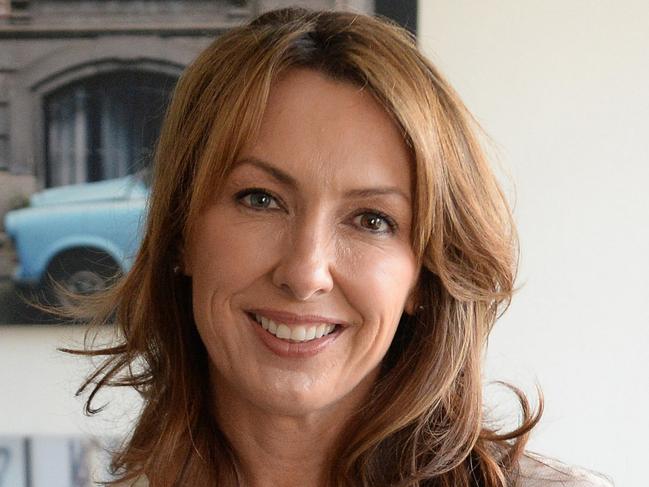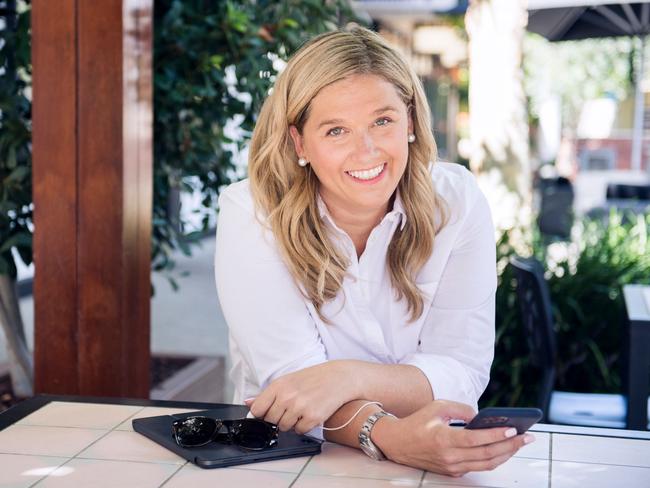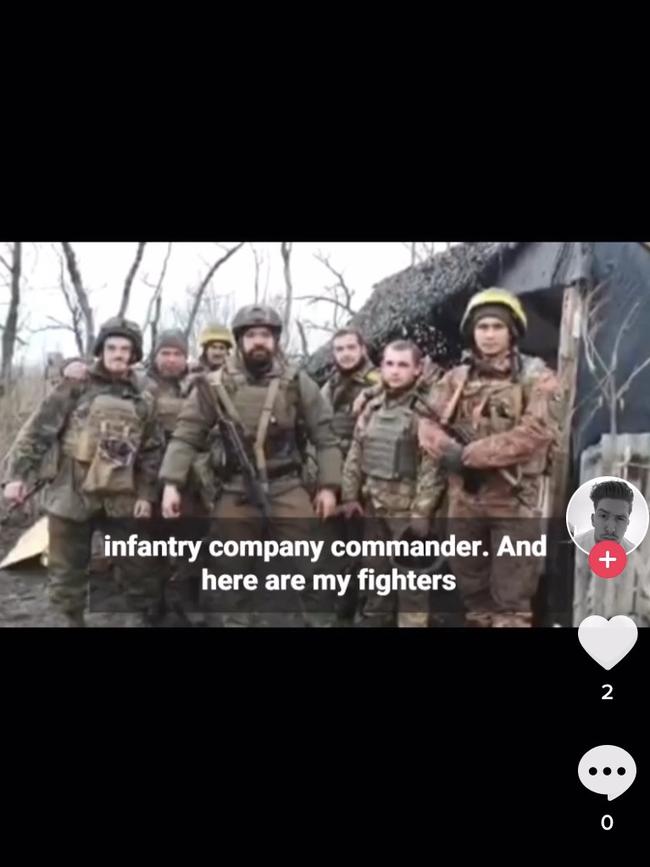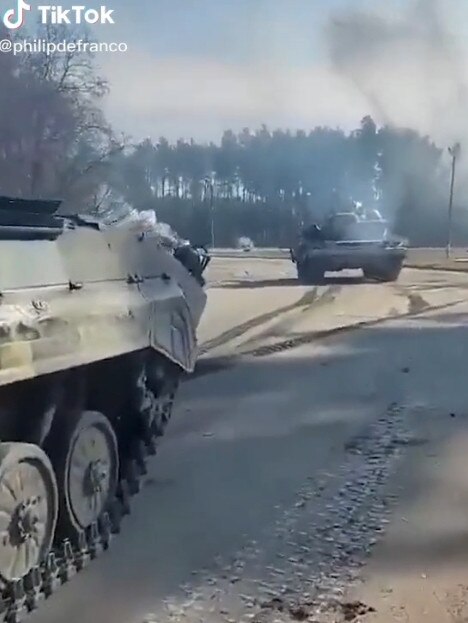Psychologists reveal ways to talk to kids about Russia, Ukraine war
Parents are being advised to talk to their children about the Russian invasion of Ukraine, in case some see it as just a real-life version of Call of Duty. SEE EXPERT TIPS.

National
Don't miss out on the headlines from National. Followed categories will be added to My News.
Children are watching uncensored war footage in real time on TikTok, experts have warned.
It comes as child psychologists advised parents to talk to their school-aged children about the Ukrainian situation because they will undoubtedly hear about it at school.
Child psychologist Deirdre Brandner said parents should be aware that there will be some “one upmanship” among adolescents who will want to shock others with what they’ve seen.
“There will be fear mongering in the playground,” she said.
“Some will like the drama and want to shock others with what they’ve seen.
“If your child is finding it upsetting, they should say so.”
She said parents should also remind children to switch off their social media and that they should not have the TV news going 24/7 either.
“Put boundaries around the news cycle,” Ms Brandner said.
“We can’t completely protect them from it, but we need to protect them and ourselves from the constant downloading of information.”

She said most children will understand the significance of a real war, compared to video games like Fortnight or Call of Duty.
But at the same time, it was important parents discuss with their children what real conflict is like for those who are impacted.
“When we see displaced families or homes being destroyed it triggers a different type of emotion, than when we play a video game,” Ms Brandner said.
“When we talk to children about war it is important to talk about what it means for people going through it.”
Social media expert Meg Coffey said this was the first time war was being played out on TikTok in this way.
“We’ve never had war brought to us in the palms of our hands before,” she said.

“The shocking thing is that entertainment videos are being followed by war videos.
“We are not in control of the TikTok algorithm. It is really confronting.”
She also warned that there was a lot of misinformation online and that parents should make sure children understand that.
“Even if an account has a blue tick, it does not mean it is a reliable source,” she said.
She said they should encourage them to get their information from across a number of trusted print, TV and radio sources.
Ms Brandner said even very young children, those under five, may see or hear something and that they must be prepared to answer their questions.
“If they ask why a little girl is crying on the TV, then explain it in very simple terms that she is sad to be separated from her daddy.
“You don’t want to overwhelm them with information.”


She said primary school kids will also hear about the war in the playground and that parents should show them a map and explain that the conflict was happening a long way away.
Child and educational psychologist Andrew Greenfield said parents should show empathy for the people of Ukraine and admit if they don’t know all the answers.
“If your child asks a question, ask them first what they know and what are they worried about?” he said.
“It’s important to get some of the facts and you can look them up together.
“Reassure them they don’t need to be overly scared by it.”
He said some children might benefit from doing something practical to help the people of Ukraine, whether it is fundraising or donating clothes or toys.

HOW TO TALK TO YOUR CHILD ABOUT THE WAR:
Preschool:
*Try not to have the TV news on while they are around, but don’t rush to turn it off
*Don’t bring the subject up unless they ask about something they have seen or heard
*Keep any explanation very simple and make sure to say it is happening a long way away
Primary school:
*They will hear about the war at school, so talk to them about it in simple terms
*Get a map and show them how far away it is
*Tell them they can always come to you and ask questions if they are worried
*Don’t pretend to know all the answers, it’s OK to say you don’t know
*If they say they want to help those impacted, investigate how you can do that together
High school:
*Adolescents will see a lot of war content on their social media feeds and through friends
*Explain that not all social media content can be trusted and to go to a variety of trusted sources
*Encourage them to switch it off if it is making them anxious
*If they are worried, point out how far away it is
*Encourage them to ask questions and be honest if you don’t know all the answers
*If they want to do something to help Ukrainians, help them find an appropriate way
More Coverage
Originally published as Psychologists reveal ways to talk to kids about Russia, Ukraine war





